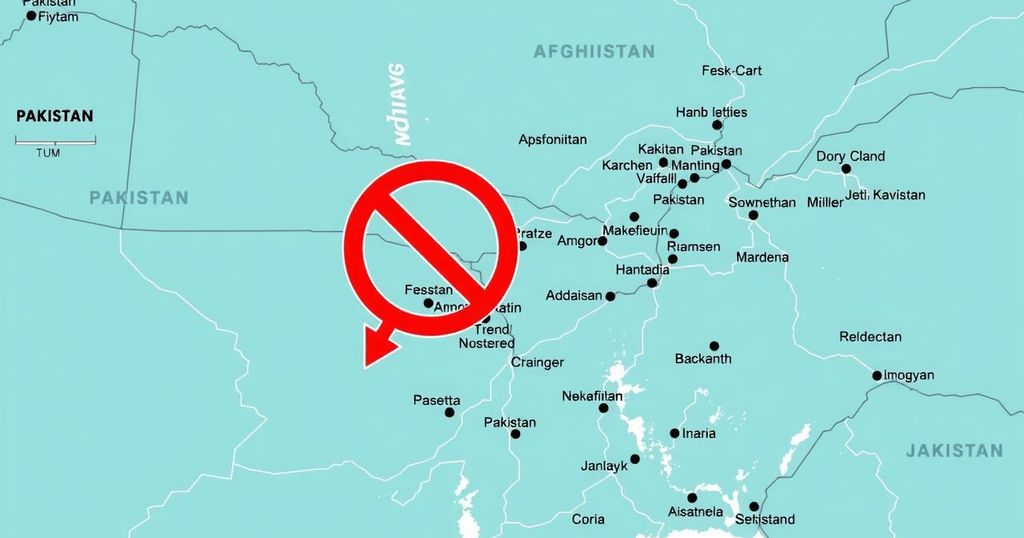U.S. Travel Ban May Expand to Include Pakistan and Afghanistan

The U.S. may soon include Pakistan and Afghanistan in a travel ban as President Trump reviews security vetting processes. Reports suggest quick action following a White House report due on March 12. Pakistani officials express optimism about their country’s position, while concerns grow for Afghan refugees amid potential new restrictions.
The United States may soon include Pakistan and Afghanistan in a travel ban, as President Donald Trump considers reviving an expanded version of the Muslim ban from his first term. A report on this development is set to reach the White House on March 12. Previously, Trump requested a review of visa-approval processes and has emphasized the need for stringent vetting of prospective visitors. Shawn Vandiver, head of AfghanEvac, expressed concerns regarding the potential impact on Afghan refugees awaiting U.S. travel approval.
Given recent positive comments from Trump about Pakistan’s role in capturing a suspect connected to a deadly bombing in Kabul, Pakistani officials maintain a hopeful outlook that the country might not be included in the new restrictions. Specifically, Trump thanked Pakistan for aiding in the arrest during a congressional address, which might influence the decision-making process concerning the travel ban.
Trump’s January executive order tasked federal agencies with identifying nations that require either full or partial travel suspensions due to inadequate vetting information. Reports indicate that a new travel ban may implement restrictions for individuals from Afghanistan and Pakistan based on assessed security risks. Notably, the proposed ban could impact tens of thousands of Afghans previously approved for resettlement in the U.S. as refugees or Special Immigrant Visa holders.
In early 2017, Trump initiated his first travel ban, targeting multiple countries and resulting in significant disruptions for travelers worldwide. The latest measures, part of a broader ban, could create further challenges for Afghan nationals, many of whom are in precarious situations due to their affiliations with U.S. military operations. The estimated U.S. population of Pakistani descent exceeds one million, and a substantial number of Pakistani students are currently studying in the U.S.
The potential expansion of the U.S. travel ban to include Pakistan and Afghanistan reflects ongoing concerns regarding national security and vetting processes. With key reports due soon, the decision may significantly impact Afghan nationals seeking refuge amid escalating threats. As history shows, formal restrictions can have broad implications for affected populations, reiterating the importance of due diligence in policy formulation.
Original Source: www.thenationalnews.com







